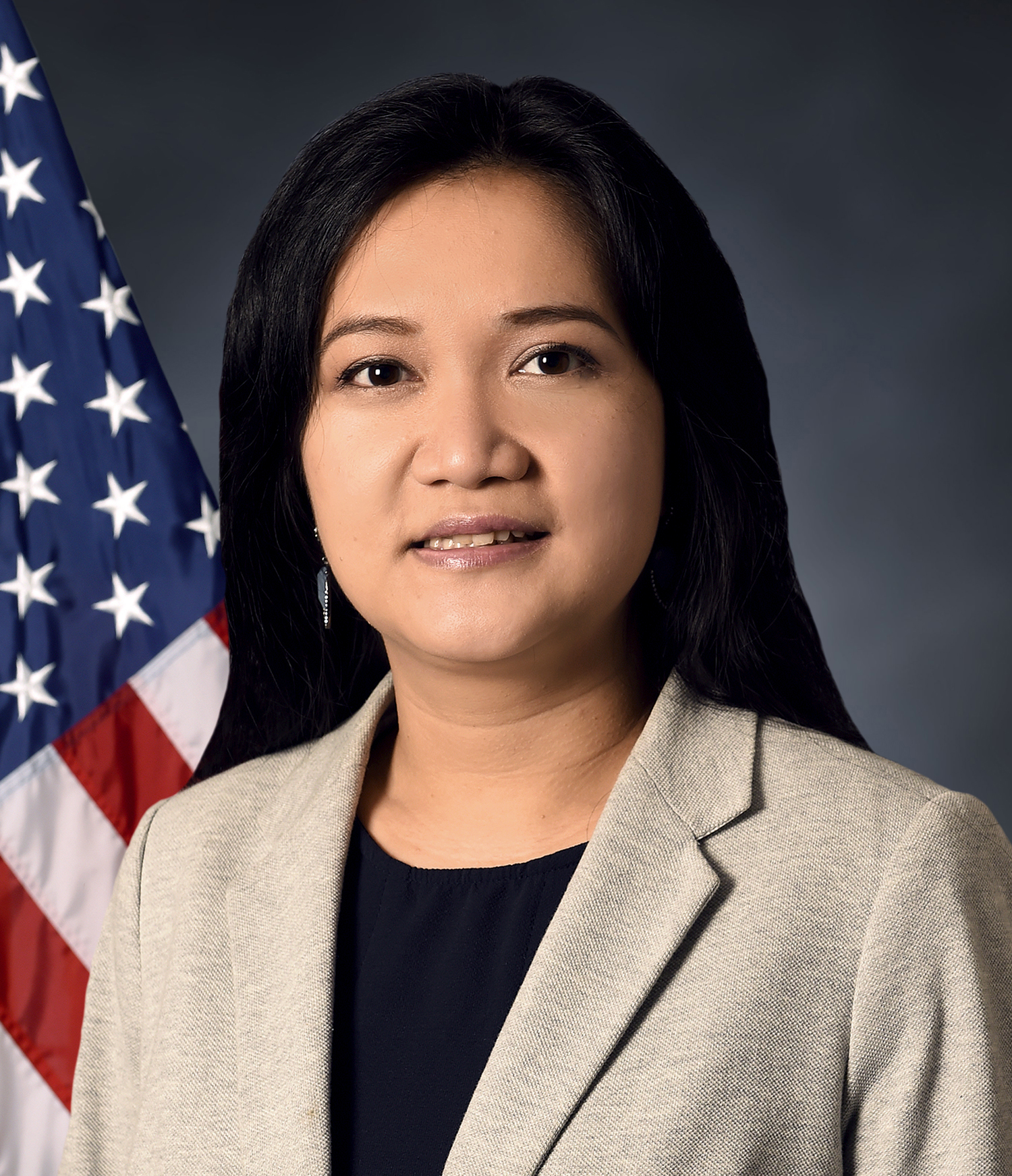Senior Electronics Engineer
Dr. Ngwe Thawdar
Information

What she does
Dr. Ngwe Thawdar is a senior electronic engineer in the Communications Systems and Technology Branch of AFRL’s Information Directorate in Rome, New York.
She leads AFRL’s Terahertz Communications program, which studies the viability of utilizing terahertz band frequencies to fulfill future Department of the Air Force communication needs. Her team investigates radio frequencies above 100 GHz to provide ultra-wideband communication links for the airborne nodes.
Her recent accomplishment
Thawdar’s team conducted flight experiments in late 2022, to prove the viability of communications at radio frequencies above 300 gigahertz, or GHz, known in research communities as terahertz, or THz, band. Over three days of flight experiments, she led a team of researchers from AFRL’s Information Directorate, Northrop Grumman and Calspan Flight Research to measure propagation loss between two aircraft at Air Force relevant altitudes and ranges.
Propagation loss is a measure of the reduction in the power as the radio waves propagate away from one aircraft to another. It is defined as the difference between the transmitted and the received power level.
“AFRL has been an early supporter of research and development in sub-THz and THz frequencies, and since 2014, we have been enabling innovative communications and networking technologies at this new spectrum frontier,” said Dr. Thawdar. “Terahertz frequencies are currently underutilized due to lack of advanced electronic devices, but the past two decades of research and development, particularly from DARPA Microelectronics Technology Office, have made it possible for experimentation in the terahertz band.”
Why she enjoys her work
“Every day brings a different problem to solve, a different project and opportunities. At the AFRL, we get to do unique things that only the Air Force can do,” Thawdar said.
Thawdar enjoys having the opportunity to collaborate across the country with different agencies, DoD components, industry and academia.
“We are the sole S&T [science & technology] organization of the Air Force and Space Force, and I think of how fortunate we are that we get paid to work on the coolest projects for the most tech-forward organization in the country,” Thawdar said.
Her advice to young people interested in STEM
STEM, in Thawdar’s opinion, is for those who have the courage and conviction that what they’re doing is important and that it will make an impact.
“Go for it!” Thwadar said. “When we are young, we are afraid of missing out (FOMO). If you’re in STEM, I can assure you that you’re not missing out. You are in the midst of research and development of the latest technologies that affect society and the way we live.”
